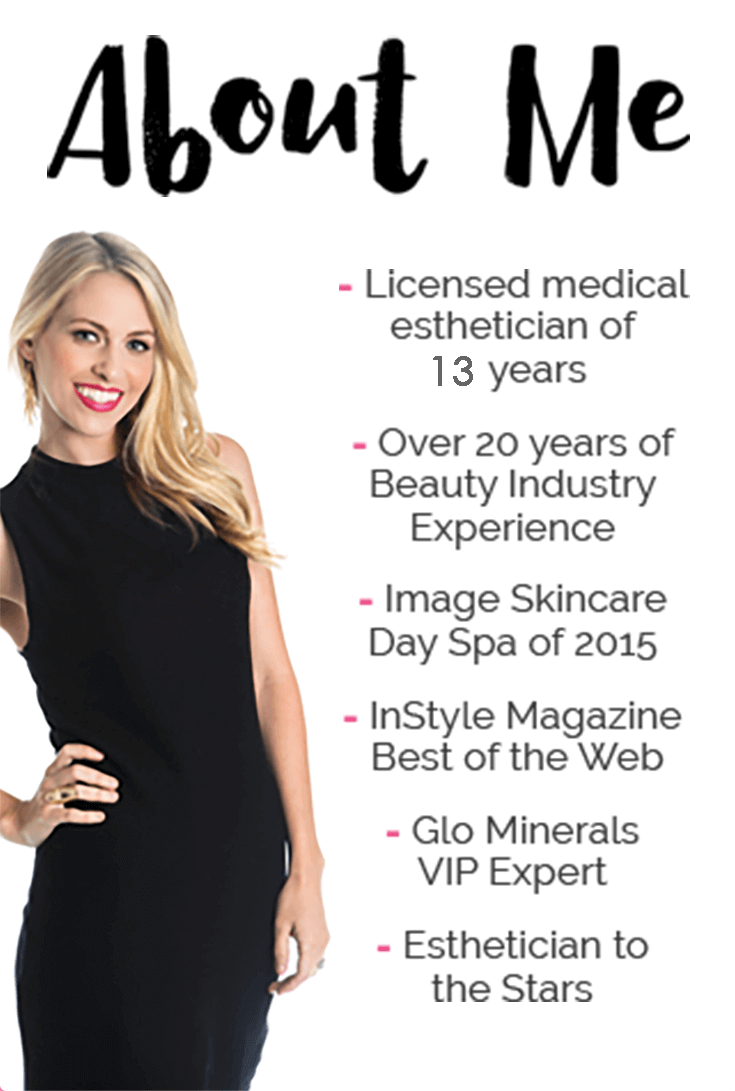What Should You Be Using In Your Skin Care Routine?
Take my quiz and get personalized recommendations from a
licensed esthetician!
Sensitive Skin Facts, Tips & Tricks
Living with sensitive skin can be difficult when it comes to finding a product that is gentle yet effective! Today I want to share some of my favorite tips with you on how to pick a product that will work for you skin, and discuss common ingredients that you should definitely try to avoid! Are you ready for it?
Sensitive Skin: Dos & Don'ts
DO try a test patch first - I cannot stress this enough, try a test patch! Take a small amount of product and swatch it on your skin. I luckily do not struggle with highly sensitive skin, but I do have clients who swear by swatching on their hand, then swatching on their cheek
DON'T assume that a "gentle skin" or "sensitive skin" product is fine to slather on - Everyone's skin is different, and while the products that are specifically formulated for sensitive skin will likely be just fine, it is important not to assume that it would be okay to slather on your face. Again, do a test patch! Observe the results, and proceed from there. I have had very very few complaints over the years from people who experienced negative effects from sensitive skin products, but again, everyone's skin is different! Many reactions occur from allergy or sensitivity to certain ingredients.
DO know which ingredients are commonly known as potential irritants - there are many ingredients that are commonly found in skin care products. Some of these are tolerated well by those with normal skin types, but are not tolerated well by those with sensitive skin. See below!
Fragrance - fragrances may cause contact dermatitis, which is why I typically recommend fragrance-free products to my sensitive skin clientele. If a product is scented, make sure it is naturally scented. Certain soothing ingredients have a delightful scent all on their own, it is the artificial fragrances you want to avoid!
Parabens & Preservatives - while paraben free products tend to have a shorter shelf life, the trade off is totally worth it! Parabens and preservatives have been known to cause irritation in sensitive skin, amongst other things.
Soaps - do not reach for any old soap! Traditional soaps typically contain harsh cleansing agents such as sulfates and antibacterials that can be harsh and drying to sensitive skin. If you notice your cleanser making your skin raw, itchy, or peeling, it may be time to swap it for a gentler version.
Monitor Your Makeup - your makeup is just as privy to having harsh ingredients
Be Weary of Acne Fighting Ingredients - while many people can tolerate benzoyl peroxide and salicylic acid, many others find them to be drying, itchy, and irritating. Other ingredients that can cause similar results are Retinols, AHA, Glycolic, and more. While these ingredients may do just fine on your personal skin, it is important to note that they do often cause irritation. Consult a skin specialist if you need help finding a product that is right for your sensitive skin! My medical estheticians and I are always happy to help!
Top Brands
New Brands

Recent Posts

Are You Taking the Right Steps to Care for Your Skin?
Take the Quiz
Skincare Secrets!
10-step guide for healthy, beautiful skin after kids.
100% privacy. I will never spam you!













